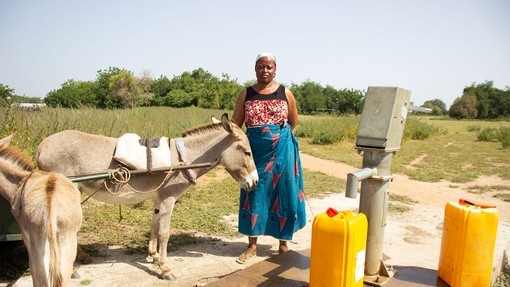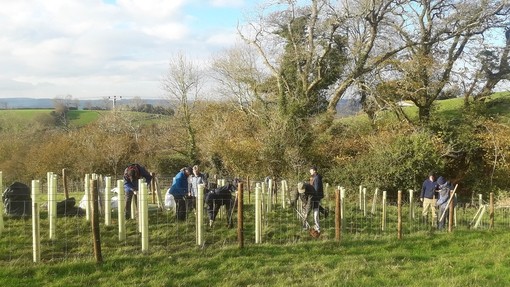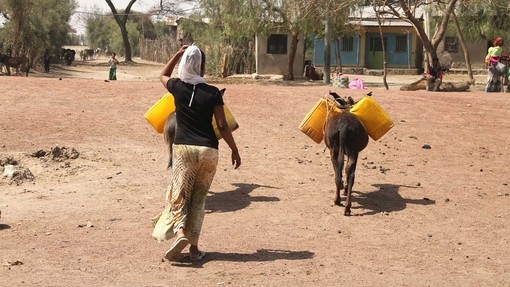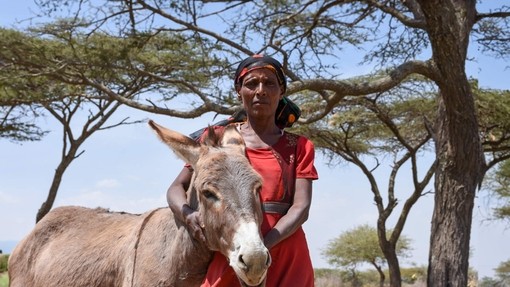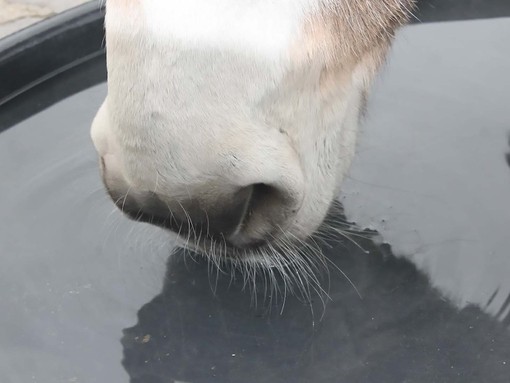
World Water Day 2023
At The Donkey Sanctuary, we look at the world from the donkeys’ perspective, paying close attention to their relationships with the land and humanity.
By recognising the fascinating and unique connections between donkeys, humans and the environments they share, we often find that safeguarding their welfare provides additional advantages to communities and habitats.
This World Water Day, we examine two collaborative projects where protecting donkeys’ welfare benefited communities’ water supply and security.
Improving access to water in Ghana
Up to 200 million hours per day are spent collecting clean water worldwide.
The United Nations recognises that women and girls are usually responsible for fetching clean water, which can be dangerous and time-consuming and risks excluding them from education or earning an income.
The simple act of a donkey helping to carry water reduces the time required to access it and eases the physical demands of collection.
We recently joined forces with Action Aid, working on a project to improve water access in rural Ghana.
Easier water access means better hydration for the donkeys and shorter water collection distances.
This project, designed to give donkeys better water access by strategically drilling new boreholes and reconstructing a water collection reservoir, additionally helped local women support their families.
Mariama Braiamah, 43, is a resident of Sissala’s Chinchang community. Reflecting on the project, she says: “We used to struggle a lot in search of water. We had only one borehole.
“Now, when my daughter comes from school, I no longer tell her to stay home and fetch water. When she returns from school, she is free [to do other things].”
Shetu Abu, 45, also lives in the Chinchang community with her husband and children.
She says, “My donkeys and my children struggled a lot. All the suffering we used to go through has ended. This borehole is very beneficial to us.
“Now, we no longer fetch water with buckets to feed the donkeys, we send the donkeys to the borehole to drink.”
Reducing flood risk and improving water quality in the Otter Valley
Water is vital for life, but it can sometimes pose a danger.
An ongoing hedgerow restoration initiative at Woods Farm in the Otter Valley, Devon, has provided the resident donkeys with enrichment and shelter and a safe habitat for native wildlife.
Initially funded in 2021 by South West Water’s Upstream Thinking project in partnership with Devon Wildlife Trust, the scheme also helps to reduce sediment and water runoff from Woods Farm.
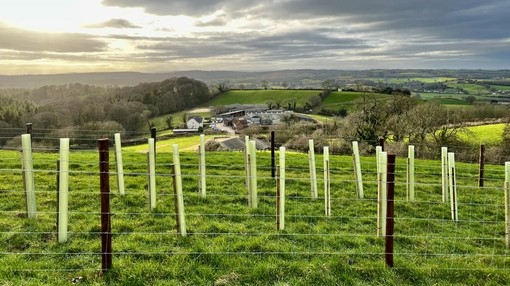
In the long term, the hedgerows will help to improve water quality and reduce the risk of flooding across the catchment of the nearby River Otter.
Commenting on the project, Ruth Angell, our Ecology and Conservation Manager, says: “The project has been a great opportunity for us to improve the landscape at this farm for donkeys and wildlife, as well as the environmental benefits of reduced surface water flow and risk of erosion, and improved water quality.”
The initiative has recently seen staff and volunteers planting more hedge plants provided by Saving Devon’s Treescapes and The Woodland Trust via the Sidmouth 14,000 tree project, led by Sidmouth Council and Sidmouth Arboretum. The hedge plants are a mix of donkey-friendly species including hazel, hawthorn, blackthorn, field maple, silver birch, grey willow and dog-rose.
In addition to planting trees and hedgerows, the teams have been repairing leaky dams and adding new ones to help slow water flow down the steep hillsides.
Using felled scrub to build dams creates a barrier to the water flow, preventing the loss of soil and silt and allowing water to be absorbed and recycled by surrounding vegetation.
Your support makes stories like this possible
Share this page
Tags
- News

